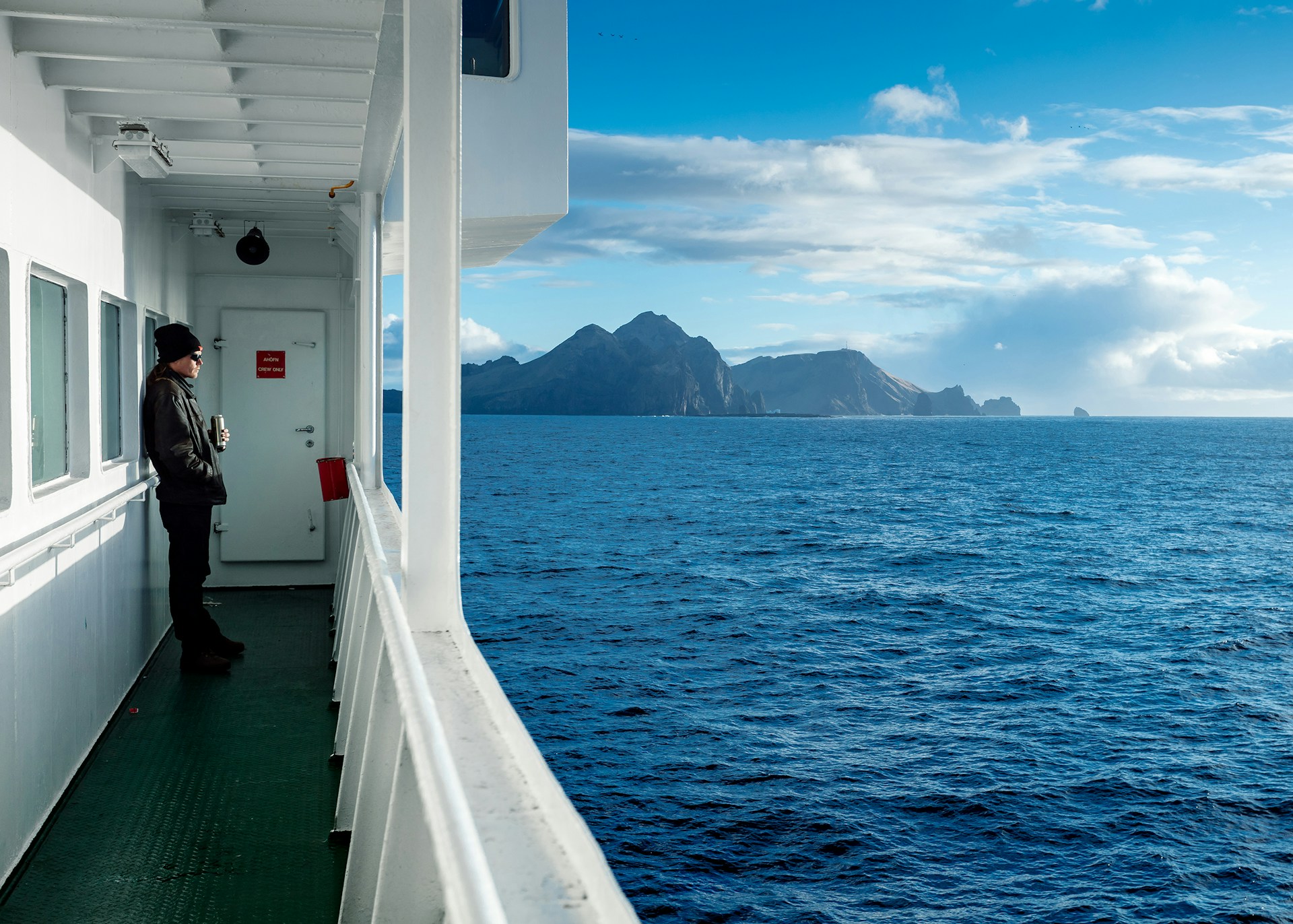Beyond 9-to-5: Why a Job at Sea Might Be Right for You

For more years than we care to count, the traditional 9-to-5 working day has been the standard model for employment in many industries around the world - jobs at sea, not being one of them!
And even though society and the way we work is evolving and undergoing significant changes, many careers are still loosely based around the traditional 9-to-5 schedule. Or 8-to-4. Or 7-to-3. You get the picture…
However, whether it’s flexi-working from home or the new four day week, this still might not be the best fit for everyone. In this blog post we're going to take a look at the limitations of the 9-to-5 model and see why alternative work arrangements - including, of course, careers at sea - can offer greater flexibility, productivity, and overall well-being.
More than 9-to-5: Why a job at sea might be a better fit for you
Rigid structure vs. flexibility
The 9-to-5 workday imposes a rigid structure that may not align with everyone's natural rhythms and preferences. Some individuals are more productive and creative during non-traditional hours or prefer to work in bursts of intense focus followed by periods of rest.
Modern work arrangements, such as remote work, flexible hours, or compressed work weeks, allow employees to tailor their schedules to better suit their individual needs and lifestyles.
But for those of you who have no interest in working in an office environment, or even from home, and who yearn for something that involves a little more action, seafarer jobs can provide what you’re looking for.
That’s not to say that working on a ship doesn’t come with its own schedules and rhythms, but if being at one with Mother Nature (both at her most beautiful and her very worst!) and working on a rotating shift pattern where you’re onboard a vessel for a set number of weeks or months and then back on land for a period of rest appeals, a career at sea could be for you.
The cost and stress of the daily commute
One of the biggest drawbacks of the 9-to-5 schedule is the daily commute, which can be a significant source of stress and a drain of time and money. Long commutes contribute to reduced work-life balance, increased fatigue, and decreased job satisfaction.
Compare that to working on a container ship or other vessel and you’ll only have two commutes to worry about every couple of months! One journey to reach your ship to embark, and the other to return home at the end of your contract.
You’ll wake up, roll out of bed, show up for your watch or shift, spend your downtime socializing with your fellow crew members, chilling in the mess or watching movies in your cabin. No time wasted and no sitting in traffic jams!
Work-life balance
The 9-to-5 working day can often blur the boundaries between work and personal life, leading to burnout and dissatisfaction. That’s even more true when it comes to the new way of working - flexible working arrangements and working from home.
On paper, these might seem like opportunities for employees to better balance their professional and personal responsibilities, but many work-from-home employees find it even harder to switch off and close the laptop at the end of the day.
Many also find themselves feeling like they need to work harder and longer to prove that they’re actually working and not just watching Netflix!
Working in a job at sea gives you an extreme version of work-life balance. No one can deny that seafarer jobs are hard work: you must be hands on, willing to roll up your sleeves, ready to obey orders, and always alert to potential dangers.
But on the flip side of the coin, once your contract is up, you get to spend as long as you like back on land with your friends and family.
Does working in a job at sea appeal to you?
The traditional 9-to-5 day is no longer the best (or only) option for anyone starting out in the world of work, despite what you may have been told.
In some countries or regions, a maritime career may not even be a contender when it comes to careers counselors, teachers or parents helping young people to decide what subjects to study. It’s also very possible that many young women don’t even consider that a seafarer job might be a fantastic career choice.
But if office work, the 9-to-5, commutes, even flexi work, or land-based manual labor don’t appeal, maybe it’s time to look at the world (specifically the ocean!) with a fresh set of eyes.
There are different ways to enter the maritime industry when it comes to working in a job at sea. Some companies will take you on in an entry level seafarer job if you have some experience working on smaller vessels such as local ferries, fishing boats or pleasure cruisers.
Often applying to a maritime academy is a good starting point. Or if you have experience in the hospitality industry, such as working as a waiter, bartender, or chambermaid, once you’ve gained your STCW (The Standards of Training, Certification, and Watchkeeping for Seafarers), which is essential for anyone who wants to work on commercial ships, and covers basic safety training, firefighting, first aid and survival at sea, you could apply for jobs on cruise ships.
Meanwhile, if you’re already working in a seafarer job and are looking to line up your next contract, take a look at Martide’s maritime jobs board and see if we have openings for your rank on one of our clients’ or manning agents’ vessels.
Who needs the 9-to-5? We’ll see you onboard!

Eve Church
Eve is Martide's content writer, publishing regular posts on everything from our maritime recruitment and crew planning software to life at sea. Eve has been writing professionally for more than two decades, crafting everything from SEO-focused blog posts and website landing pages to magazine articles and corporate whitepapers.
UK

is the only site for maritime jobs



